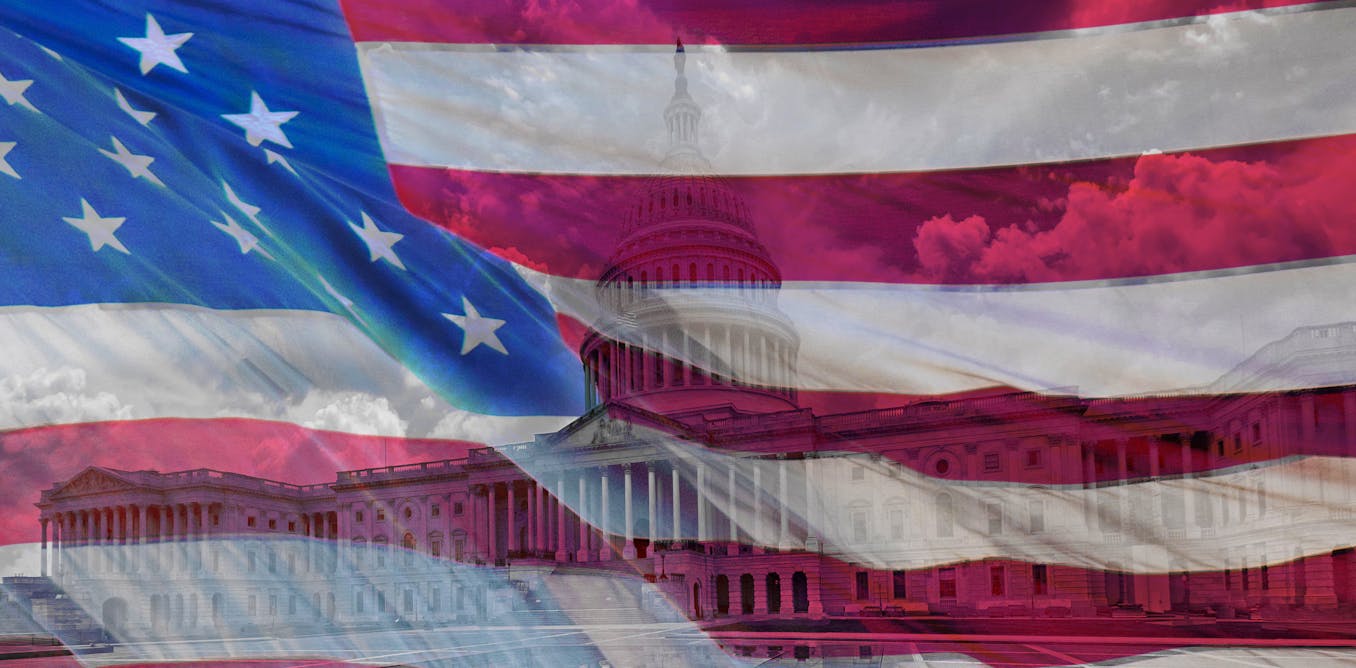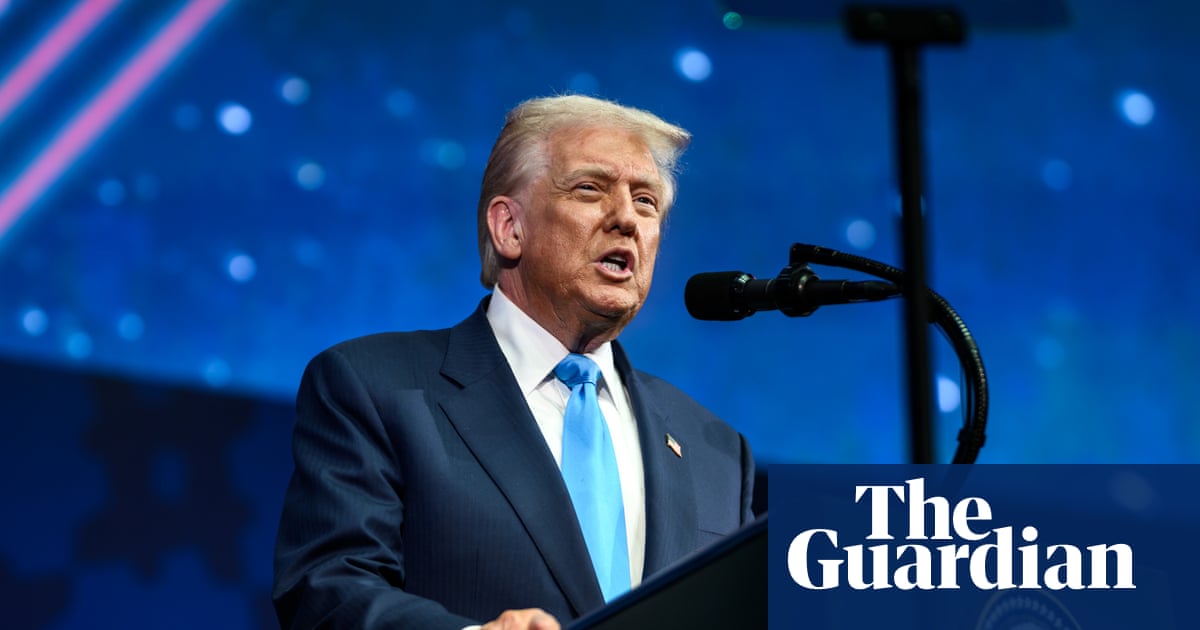WASHINGTON (AP) — A president looking to seize power beyond the executive branch. A Congress controlled by Republican lawmakers unwilling to directly defy him. And a minority party looking for any way to fight back.
The dynamic left Washington in a stalemate Thursday — the ninth day of the government shutdown — and lawmakers openly venting their frustration as they tried to gain traction without the trust that is typically the foundation of any bipartisan deal.
“To have good-faith conversations, you have to have trust. There’s a real challenge of trust,” said Rep. Brad Schneider, chair of the New Democratic Coalition, a pragmatic group of House Democrats.
Groups of lawmakers — huddled over dinners, on phone calls, and in private meetings — have tried to brainstorm ways out of the standoff that has shuttered government offices, kept hundreds of thousands of federal employees at home and threatened to leave them without a scheduled payday. But lawmakers have found themselves running up against the reality that the relationship between the two parties is badly broken.
“We’re in an environment where we need more than a handshake,” said Sen. Chris Coons, a Delaware Democrat who has engaged in talks with Republicans.
President Donald Trump and Republicans have so far held to the stance that they will only negotiate on Democratic demands around health care benefits after they vote to reopen the government. They also say Senate Democratic leader Chuck Schumer is beholden to the left wing of his party and only staging the shutdown fight to stave off a primary challenge.
“There are some things that I think there is interest on both sides in trying to address when it comes to health care in this country,” said Senate Majority Leader John Thune on Wednesday. “But you can’t take the federal government hostage and expect to have a reasonable conversation on those issues."
When a handshake deal is not enough
Democrats have insisted they can't take Donald Trump at his word and therefore need more than a verbal commitment for any deal.
“Donald Trump has no respect for law if he can push outside it, so I think we need some safeguards,” said Sen. Richard Blumenthal, a Connecticut Democrat.
Conflicts over spending power had already been raging before the shutdown as the White House pushed to assert maximum power over congressionally approved budgets. The White House budget office had canceled scores of government contracts, including cutting out the legislative branch entirely with a $4.9 billion cut to foreign aid in August through a legally dubious process known as a “pocket rescission.”
That enraged Democrats — as well as irked some Republicans who criticized it as executive overreach.
“I hate rescissions, to be honest with you, unless they’re congressionally approved,” said Sen. Thom Tillis, a North Carolina Republican.
Matt Glassman, a fellow at the Government Affairs Institute at Georgetown University, said the president's use of rescissions was “blowing up the underlying dynamic of the bargaining” because it inserts intense partisanship into the budget appropriations process that otherwise requires compromise, particularly in the Senate.
Then, as the government entered a shutdown, Trump's budget director Russ Vought laid out arguments that the president would have even more power to lay off workers and even cancel pay due to furloughed federal workers once the funding lapse is solved. Vought has also announced that the administration was withholding billions of dollars for infrastructure projects in states with Democratic senators who have voted for the shutdown.
Trump has cast Vought's actions as the consequences of Democratic obstruction, even sharing a video that depicted him as the grim reaper. But on Capitol Hill, there has been an acknowledgment that the hardball tactics are making it harder to negotiate.
“I think with senators carrots work better than sticks,” said Sen. Kevin Cramer, a North Dakota Republican.
One Democratic idea may win GOP support
Before they vote to reopen the government, Democrats' main demand is that Congress take up an extension of subsidies for health plans offered under the Affordable Care Act. Trump has sounded open to a deal, saying that he wants “great health care” for Americans.
What's received less attention is that Democrats also want new safeguards in the law limiting the White House's ability to claw back, or rescind, funding already approved by Congress. While final appropriations bills are still being worked out, Republicans have been open to the idea.
“When you end the shutdown and get back to regular order within the appropriations bills, there’s very clear language about how we feel about rescissions,” said Sen. Mike Rounds, a Republican on the Senate Appropriations Committee. “I think you’ll find hard, solid support from Republicans to see that what we agree to will be executed on.”
In the meantime, the main sticking point for lawmakers this week has been finding any agreement on extending the health care subsidies.
The consequences of an extended shutdown
As the shutdown drags on without sign of significant progress to ending the impasse, lawmakers are looking ahead to the dates when federal employees will miss a payday.
Active-duty military troops would miss a paycheck on Oct. 15. Some lawmakers are getting nervous about both the financial implications for the troops and the political blowback of allowing soldiers to go without pay.
As he argued with Democrats on Wednesday, House Speaker Mike Johnson pointed out that House Republicans have already passed a stopgap bill that would “keep the government open to make sure TSA agents, Border Patrol agents, the troops and everybody else gets paid.”
There has been some discussion in Congress of passing partial government funding legislation to ensure that military members are paid, but so far Republicans have tried to keep the pressure on Democrats to vote for their bill.
Lawmakers seemed ready to dig in and try to push each other to the brink.
“I would not challenge Donald Trump’s resolve on this if I was anybody,” Cramer said.

 German (DE)
German (DE)  English (US)
English (US)  Spanish (ES)
Spanish (ES)  French (FR)
French (FR)  Hindi (IN)
Hindi (IN)  Italian (IT)
Italian (IT)  Russian (RU)
Russian (RU) 























Comments